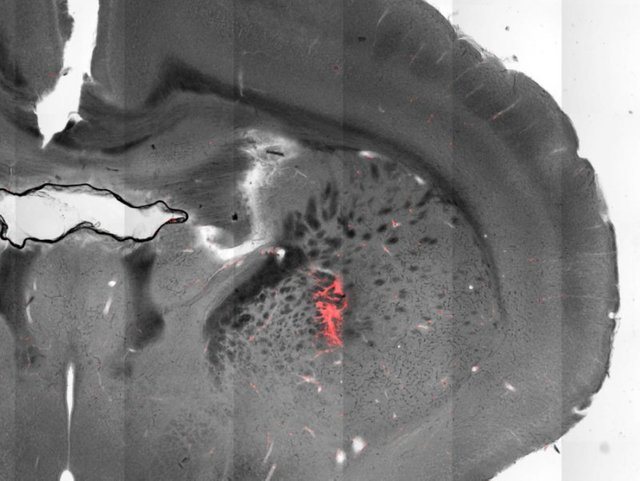
Scientists have used magnetism to activate tiny groups of cells in the brain, inducing bodily movements that include running, rotating and losing control of the extremities -- an achievement that could lead to advances in studying and treating neurological disease.
The technique researchers developed is called magneto-thermal stimulation. It gives neuroscientists a powerful new tool: a remote, minimally invasive way to trigger activity deep inside the brain, turning specific cells on and off to study how these changes affect physiology. "There is a lot of work being done now to map the neuronal circuits that control behavior and emotions," says lead researcher Arnd Pralle, PhD, a professor of physics in the University at Buffalo College of Arts and Sciences. "How is the computer of our mind working? The technique we have developed could aid this effort greatly." Understanding how the brain works -- how different parts of the organ communicate with one another and control behavior -- is key to developing therapies for diseases that involve the injury or malfunction of specific sets of neurons. Traumatic brain injuries, Parkinson's disease, dystonia and peripheral paralysis all fall into this category. The advances reported by Pralle's team could also aid scientists seeking to treat ailments such as depression and epilepsy directly through brain stimulation.
read the full article here: https://www.sciencedaily.com/releases/2017/08/170816134658.htm
Hi! I am a robot. I just upvoted you! I found similar content that readers might be interested in:
https://www.sciencedaily.com/releases/2017/08/170816134658.htm
Downvoting a post can decrease pending rewards and make it less visible. Common reasons:
Submit